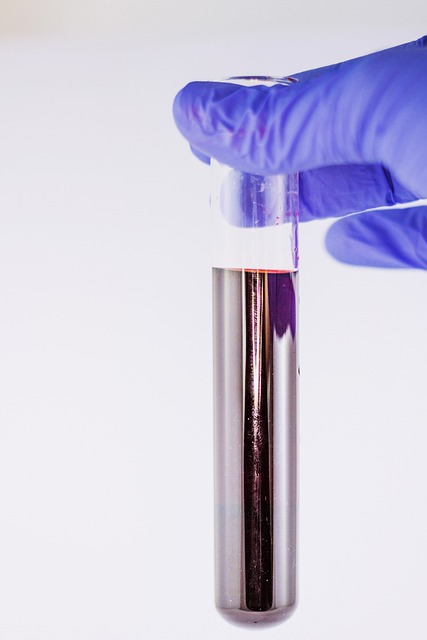Liver function tests (LFTs) are crucial blood examinations that provide insights into liver health by measuring enzymes, proteins, and other substances produced or processed by the liver. They can detect early signs of liver issues like inflammation or severe conditions such as cirrhosis, often before symptoms appear. Regular LFTs are essential for proactive liver health management, enabling timely interventions to prevent or slow the progression of liver-related problems. Proactive measures, including a healthy lifestyle and additional tests, further support optimal liver well-being.
Secure liver function tests (LFTs) are crucial tools for early detection of potential liver concerns. This comprehensive guide delves into the world of LFTs, explaining what they measure and why they’re vital indicators of liver health. We’ll explore how to interpret results, identify red flags, and highlight proactive steps—from lifestyle changes to additional testing—for maintaining optimal liver wellness.
- Understanding Liver Function Tests: What They Measure and Why They Matter
- Early Detection: Interpreting Results and Identifying Potential Liver Concerns
- Staying Proactive: Lifestyle Changes and Additional Testing for Optimal Liver Health
Understanding Liver Function Tests: What They Measure and Why They Matter
Liver function tests (LFTs) are a crucial set of blood examinations that provide vital insights into the health and performance of your liver. These tests measure various enzymes, proteins, and other substances produced or processed by the liver, allowing healthcare professionals to assess its overall functioning. By evaluating these indicators, LFTs can detect early signs of liver concerns, such as inflammation, damage, or even more severe conditions like cirrhosis.
The significance of LFTs lies in their ability to identify subtle changes in liver health before symptoms become apparent. Many liver diseases don’t show noticeable symptoms until they reach advanced stages, making regular LFTs essential for early detection and effective management. This proactive approach enables timely interventions, potentially preventing or slowing the progression of liver-related issues.
Early Detection: Interpreting Results and Identifying Potential Liver Concerns
Early detection is key in managing liver health, and secure liver function tests play a vital role here. When interpreting results, it’s important to understand that normal values can vary slightly between labs, so consulting with a healthcare professional is crucial for accurate analysis. Elevated levels of certain enzymes like ALT (alanine aminotransferase) or AST (aspartate aminotransferase) might indicate liver damage or inflammation. Additionally, changes in bilirubin levels can suggest issues with bile flow or red blood cell breakdown.
Identifying potential liver concerns early allows for prompt intervention and management. Chronic liver diseases often progress silently until symptoms appear. Regular monitoring through secure liver function tests can help detect these conditions at their feasible stages. This enables healthcare providers to recommend lifestyle changes, medications, or other treatments to prevent further deterioration.
Staying Proactive: Lifestyle Changes and Additional Testing for Optimal Liver Health
Staying proactive is key when it comes to maintaining optimal liver health. Regular liver function tests play a crucial role in early detection, allowing for timely intervention and management of potential liver concerns. Beyond these tests, adopting a healthy lifestyle can significantly impact your liver’s well-being. This includes maintaining a balanced diet rich in fruits and vegetables, avoiding excessive alcohol consumption, and engaging in regular physical activity.
Additionally, certain additional tests might be recommended to gain a comprehensive understanding of your liver’s health. These could include measurements of liver enzymes, assessments of cholesterol levels, and screenings for viral infections such as hepatitis. By combining proactive lifestyle changes with these thorough evaluations, individuals can take charge of their liver’s health and reduce the risk of developing more serious liver-related issues over time.
Regular liver function tests are a powerful tool for maintaining optimal liver health. By understanding what these tests measure and interpreting results accurately, individuals can detect potential liver concerns early on. Staying proactive through lifestyle changes and additional testing, as recommended by healthcare professionals, enables folks to navigate the path to healthier livers and overall well-being. Remember, proactive care is key when it comes to securing your liver’s function and preventing future issues.
